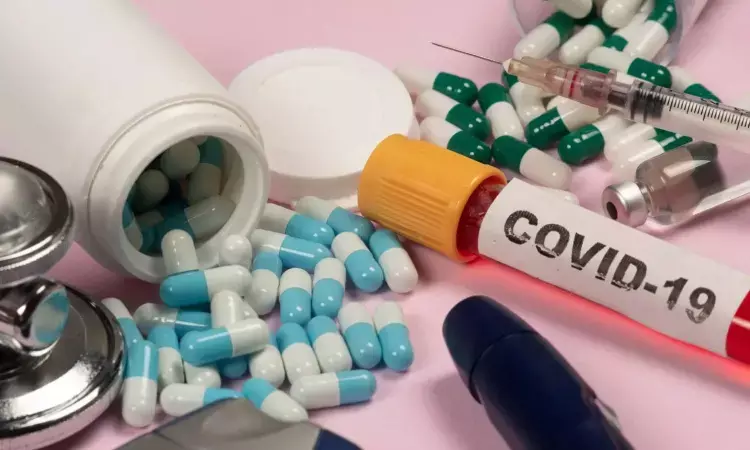- Home
- Medical news & Guidelines
- Anesthesiology
- Cardiology and CTVS
- Critical Care
- Dentistry
- Dermatology
- Diabetes and Endocrinology
- ENT
- Gastroenterology
- Medicine
- Nephrology
- Neurology
- Obstretics-Gynaecology
- Oncology
- Ophthalmology
- Orthopaedics
- Pediatrics-Neonatology
- Psychiatry
- Pulmonology
- Radiology
- Surgery
- Urology
- Laboratory Medicine
- Diet
- Nursing
- Paramedical
- Physiotherapy
- Health news
- Fact Check
- Bone Health Fact Check
- Brain Health Fact Check
- Cancer Related Fact Check
- Child Care Fact Check
- Dental and oral health fact check
- Diabetes and metabolic health fact check
- Diet and Nutrition Fact Check
- Eye and ENT Care Fact Check
- Fitness fact check
- Gut health fact check
- Heart health fact check
- Kidney health fact check
- Medical education fact check
- Men's health fact check
- Respiratory fact check
- Skin and hair care fact check
- Vaccine and Immunization fact check
- Women's health fact check
- AYUSH
- State News
- Andaman and Nicobar Islands
- Andhra Pradesh
- Arunachal Pradesh
- Assam
- Bihar
- Chandigarh
- Chattisgarh
- Dadra and Nagar Haveli
- Daman and Diu
- Delhi
- Goa
- Gujarat
- Haryana
- Himachal Pradesh
- Jammu & Kashmir
- Jharkhand
- Karnataka
- Kerala
- Ladakh
- Lakshadweep
- Madhya Pradesh
- Maharashtra
- Manipur
- Meghalaya
- Mizoram
- Nagaland
- Odisha
- Puducherry
- Punjab
- Rajasthan
- Sikkim
- Tamil Nadu
- Telangana
- Tripura
- Uttar Pradesh
- Uttrakhand
- West Bengal
- Medical Education
- Industry
Low vitamin D levels tied to increased risk of COVID-19 infection: Study

New Delhi: Low serum levels of vitamin D are significantly associated with the risk of acquiring COVID-19 infection and this relationship was stronger in females compared to male COVID-19 patients, a recent study has stated.
Findings of the study, published in the Journal of Preventive Medicine and Public Health, indicate that vitamin D levels should be monitored, and vitamin D supplementation should be considered in COVID-19 patients to improve their recovery.
Previous studies have linked low vitamin D status with the outcomes of coronavirus disease 2019 (COVID-19), but the findings of published studies are contradictory. Therefore, Pinki Mishra, Centre for Translational and Clinical Research, School of Chemical and Life Sciences, Jamia Hamdard, New Delhi, India, and colleagues aimed to examine the association between lower vitamin D levels and comorbidities and COVID-19 infection risk.
For this purpose, the researchers searched the online databases for articles published until August 20, 2021. Sixteen studies consisting of 386 631 patients (of whom 181 114 were male) were deemed eligible. Observational cohort and case-control studies that evaluated serum levels of vitamin D in COVID-19-positive and COVID-19-negative patients were included.
The study led to the following findings:
- Significantly lower vitamin D levels were found in COVID-19-positive patients (MD, -1.70), but with variation by study design (case-control: -4.04; cohort: -0.39). This relationship was more prominent in female patients (MD, -2.18) than in male patients (MD, -1.74).
- Male patients showed higher odds of having low vitamin D levels (odds ratio [OR], 2.09) than female patients (OR, 1.17).
- Comorbidities showed inconsistently, but generally nonsignificant, associations with COVID-19 infection.
"Low serum levels of vitamin D were significantly associated with an increased risk of acquiring COVID-19 infection," the researchers wrote in their study. "Comorbidities such as hypertension, cardiovascular disease, diabetes, and chronic lung disease were not tied to a higher risk of COVID-19 infection."
Reference:
Mishra P, Parveen R, Bajpai R, Agarwal N. Vitamin D Deficiency and Comorbidities as Risk Factors of COVID-19 Infection: A Systematic Review and Meta-analysis. J Prev Med Public Health. 2022;55(4):321-333. doi: 10.3961/jpmph.21.640. PMID: 35940187.
Dr Kamal Kant Kohli-MBBS, DTCD- a chest specialist with more than 30 years of practice and a flair for writing clinical articles, Dr Kamal Kant Kohli joined Medical Dialogues as a Chief Editor of Medical News. Besides writing articles, as an editor, he proofreads and verifies all the medical content published on Medical Dialogues including those coming from journals, studies,medical conferences,guidelines etc. Email: drkohli@medicaldialogues.in. Contact no. 011-43720751


